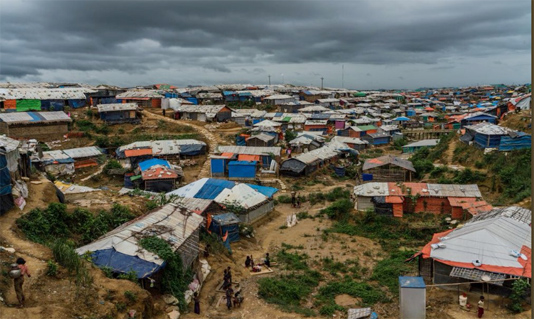DHAKA, Dec 10, 2019 (BSS) – The Danish government has contributed an
additional 16 million Danish kronor (US$ 2.35 million) to the United Nations
World Food Programme (WFP) to help meet the urgent food needs of forcibly
displaced Rohingyas and the host community in Cox’s Bazar.
“Denmark highly appreciates the generosity of the government of Bangladesh
during this humanitarian crisis and acknowledges the huge burden this places
on the host country. Denmark is committed to continuing its support to the
Bangladesh government, Rohingya people, and the host community” said Danish
Ambassador in Dhaka Winnie Estrup Petersen.
The envoy also said she is impressed by WFP’s efforts to ensure vital food
assistance to such a large population in a challenging environment, a WFP
press release said.
“Among the 9 lakh or so Rohingyas living in Cox’s Bazar, 80 percent of
them are entirely dependent on WFP’s food assistance to survive. This timely
funding from the Danish government will help us support the most vulnerable
children and women living in the camps,” said WFP Representative to
Bangladesh Richard Ragan.
“This funding will also contribute to the livelihoods of people from the
host community through our livelihoods programme which empowers the women of
Cox’s Bazar by providing cash grants and entrepreneurial training so they can
start their own businesses,” the WFP official said.
Cox’s Bazar has been one of WFP’s largest operations in Asia since August
2017 when more than 745,000 Rohingya people began fleeing violence in
Myanmar. They joined almost 200,000 Rohingyas who were already living in
Cox’s Bazar having fled previously.
The total Danish contribution to this crisis since August 2017 amounts to
338 million DKK (about US$ 52 million) and the Danish government was one of
the first donors to support WFP in meeting the urgent humanitarian needs of
the forcibly displaced population. The remarkable Danish contribution enabled
WFP to support emergency malnutrition treatment and prevention programmes,
provided life-saving food assistance, and assisted children with locally-
produced micronutrient fortified biscuits in learning centres in the camps,
the release said.



